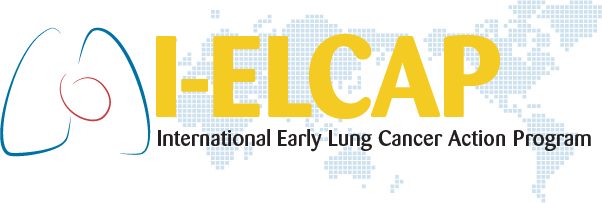Previous Meetings
The 1st International Conference on Screening for Lung Cancer
Friday, October 1, 1999 to Sunday, October 3, 1999
Weill Medical College of Cornell University
New York, NY
United States
Agenda: 1st Conference Agenda
Consensus Statement:
Lung cancer kills more individuals than cancers of the breast, colon, cervix and prostate combined. Recent scientific advances create an extraordinary potential to develop a lung cancer screening program that would prevent untimely deaths of vast numbers of current and former smokers who remain at high risk despite smoking cessation. The most promising of these scientific advances are rapid (single breath-hold helical) CT and computerized molecular analysis of airway cell markers (ACM). Each identifies lung cancers much earlier in their development than previously possible with conventional techniques and are likely to be complementary to each other in enhancing early detection of lung cancer. There is compelling evidence that use of these approaches can lead to high cure rates of lung cancer, a disease which currently has a dismal outcome.
The technology to implement these screening approaches currently exists and could rapidly be extended to offer screening to high-risk populations of smokers and former smokers. This creates an urgent need for research to evaluate how these techniques can best be utilized and the magnitude of the benefit they can create in order to allow appropriate public policy decisions about screening for lung cancer.
In December 1998, the International Conference on Prevention and Early Diagnosis of Lung Cancer, sponsored by the American Cancer Society (ACS), the Union International Contre Le Cancer (UICC), the Alliance for Lung Cancer Advocacy, Support, and Education (ALCASE) and other international organizations re-examined the recommendations against screening for lung cancer. The experts concluded that the information leading to these recommendations based on previous screening trials conducted more than two decades ago had a number of limitations and thus comprised an imperfect basis for current health policy. In light of emerging information and the enormous importance of the lung cancer problem, that conference recommended urgent reconsideration of issues surrounding early detection of lung cancer.
In response to this challenge, the first International Conference on Lung Cancer Screening was held in October 1999. A group of international experts in imaging, molecular diagnostics, pulmonology, oncology, epidemiology, clinical trial design, statistics, health care policy and patient advocacy met to address the issues central to lung cancer screening. The meeting was co-sponsored by the ACS, the National Cancer Institute, ALCASE, Weill Medical College of Cornell University and other organizations. The conference reviewed currently available data on lung cancer screening and engaged in intensive analyses of the implications with a view to attaining consensus with respect to the main issues surrounding early detection of lung cancer.
It was agreed that subsequent to the institutional policy statements not recommending screening for lung cancer, two important developments have occurred. Compelling evidence has continued to emerge over the past decades that resection of early lung cancer has major bearing on survival, and new techniques now provide for distinctly earlier detection of the disease. From this it follows that modern screening for lung cancer would save lives. Beyond this qualitative conclusion, there is an urgent need to learn about the magnitude of this effect.
It was recognized that more than 20,000 people have already participated in studies evaluating the efficacy of CT screening for lung cancer in the United States, Europe, Middle East, and Japan and more than 9000 using ACM. It was agreed that to further quantify the magnitude of the effect, the recommendation to use randomized controlled trials requires serious reconsideration for several reasons. The principal reasons among these are the high cost, long duration of such studies and the rapid advances in technology, together with existing visions of a less expensive and more rapid approach, one already being implemented by ongoing studies.
The conference agreed to form working groups and on a need to reconvene within six months to more closely review the ongoing studies and other interim developments.
